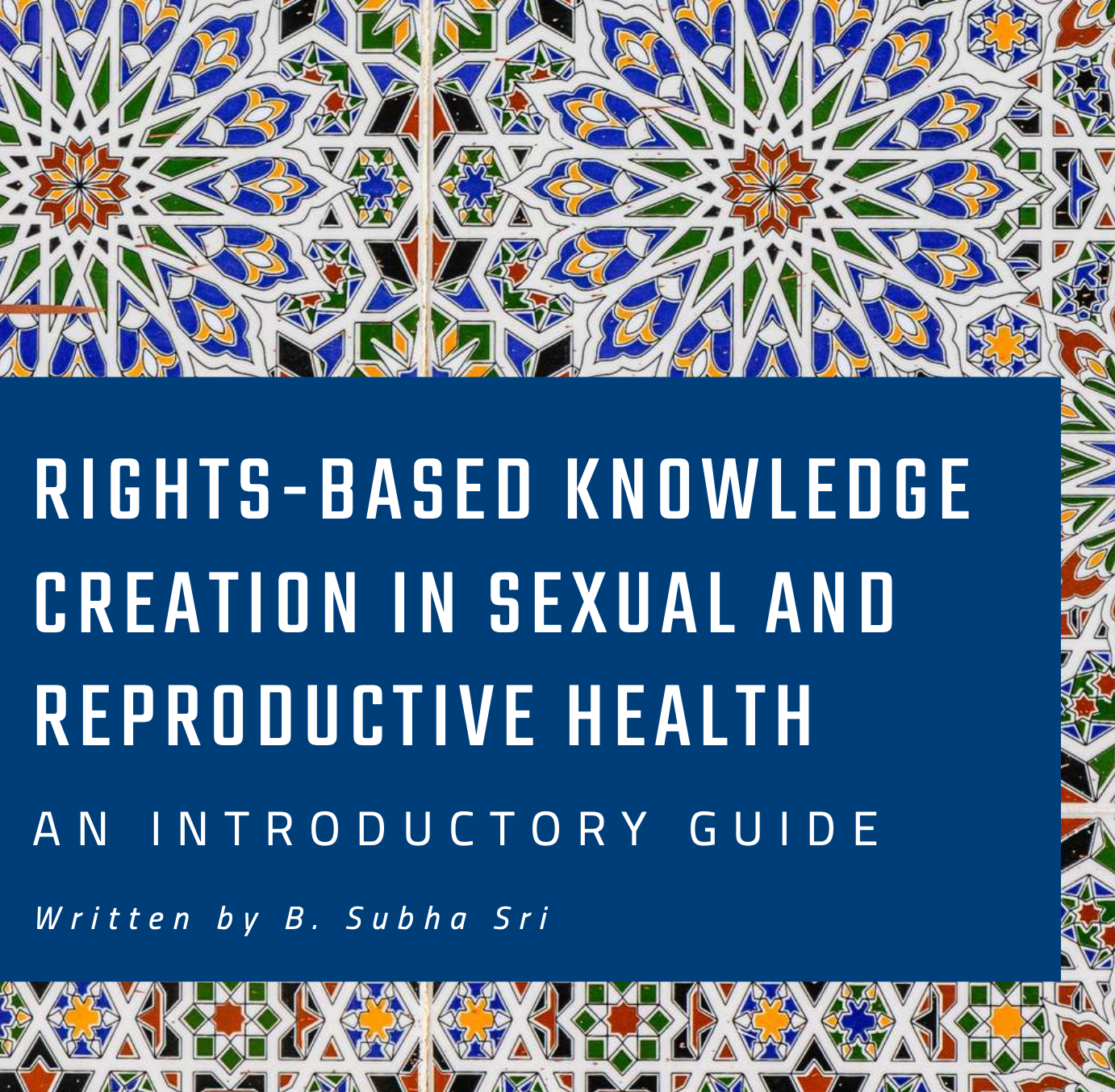Rights-Based Knowledge Production in Sexual and Reproductive Health
Introduction:
Human rights-based approaches to the creation of knowledge[1] involve application of human rights principles to both the content and process of knowledge creation. Human rights-based approaches have special significance for the sexual and reproductive health and rights (SRHR) of all people, in particular for women and girls, people living with disability, lesbian, gay, bisexual, trans, queer or Intersex (LGBTQI) populations, refugees, migrants and other marginalised populations. Violation of human rights is pervasive at different levels in matters related to sexuality and reproduction – from state policies that are blind to human rights, to social norms and practices that violate the human rights of marginalised communities.
Applying a human rights lens to knowledge creation enables all, and especially marginalised populations, with capacities and resources to claim their SRHR in a way that empowers them, while simultaneously providing the opportunity to hold duty-bearers accountable to fulfil their human rights obligations.
A human rights-based approach to sexual and reproductive health (SRH) is based on the principles laid out in various international and regional human rights treaties and consensus documents, as well as in national constitutions and laws. These include the rights to life, security, to be free from inhumane and degrading treatment, non-discrimination, autonomy, health, privacy, confidentiality, freedom of assembly and participation. These rights are indivisible and interdependent. It means that SRH research designs and evaluations always need to incorporate these human rights principles, while the processes of research and other types of knowledge creation need to be inclusive, participatory and accountable to the needs of the communities involved in the research.
Human rights are indivisible and interdependent. For example, lack of quality emergency obstetric care services or denial of abortion often lead to maternal deaths and morbidity, which in turn constitutes a violation of the right to health, life or security. In certain circumstances, this can amount to torture or cruel, inhuman or degrading treatment when the lack of quality services is paired with, for example, obstetric or other type of violence.
In addition to the human rights standards elaborated by international, regional and national human rights bodies, consensus documents and public health standards provided by the World Health Organization, other international public health entities, and regional or national public health authorities, provide specific guidance for an integrated health and rights approach for SRH.
Based on these health and human rights standards, in this guide, we discuss the following human rights and human rights-based principles as underpinning rights-based knowledge creation:
1.The right to non-discrimination and equality
2.The right to the highest attainable standard of health including availability,
accessibility, acceptability, and quality of services
3. The right to autonomy and self-determination, including informed decision-making 4.The right to privacy and confidentiality
5.Accountability, including transparency
6.The right to participation
Each of these principles is explained in the guide. Please click here to read the full text.
